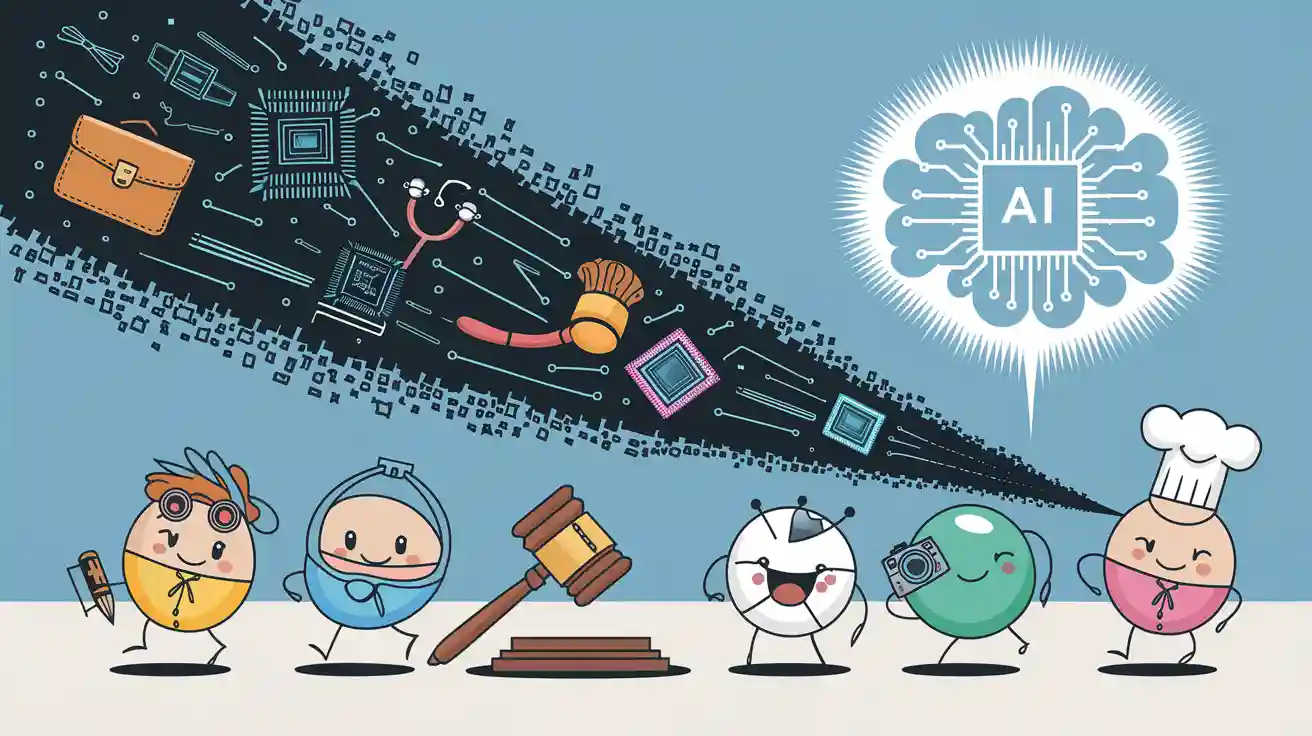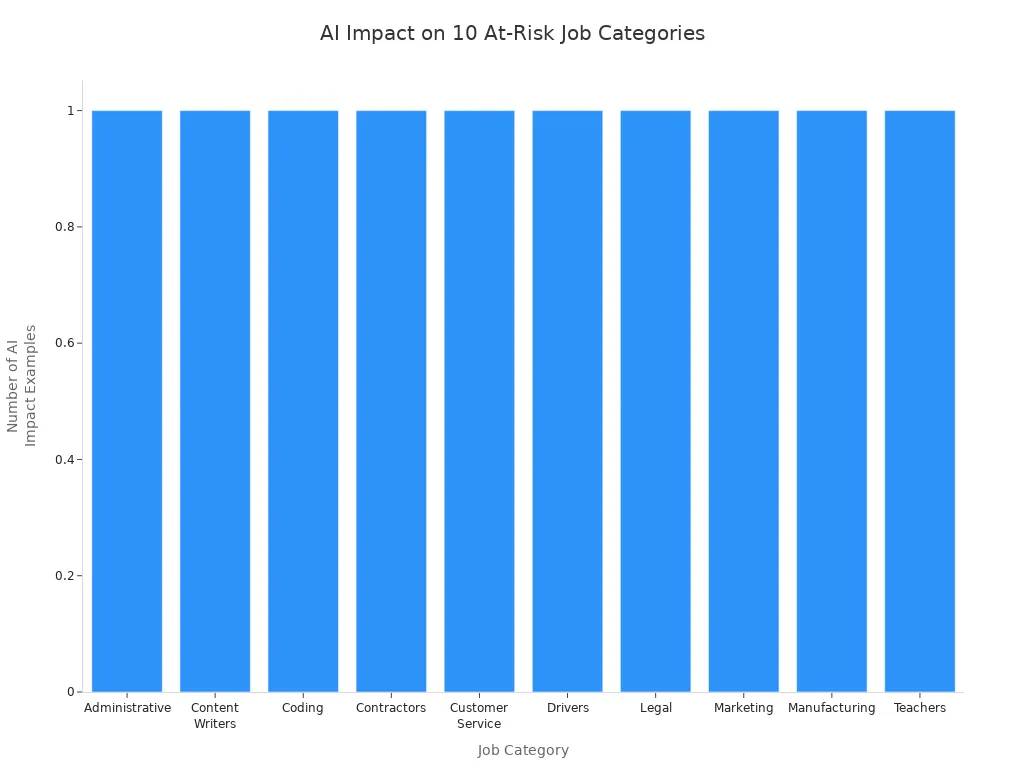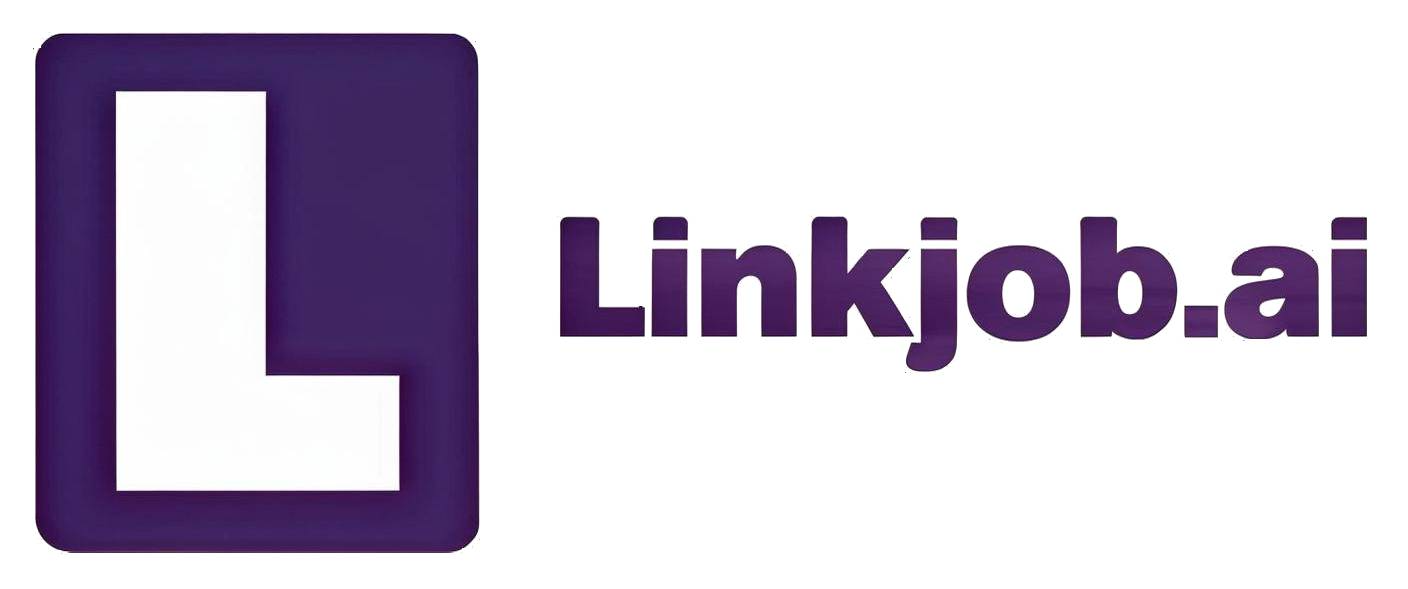10 Jobs Sam Altman Predicts Will Vanish Because of AI

You might wonder which jobs could vanish next. Sam Altman, the openai founder, points to customer service jobs as the first to go. Expect roles like data entry, telemarketing, retail cashiers, paralegals, content writers, bookkeepers, fast food workers, manufacturing roles, and graphic designers to follow. Customer support faces a real shake-up—experts project a 5% drop in these jobs over the next decade. Sam Altman on ai replacing jobs highlights how AI-powered systems now handle tasks once done by people, speeding up this change.
Key Takeaways
AI will replace many jobs that involve routine tasks, with customer service roles disappearing first.
Jobs like data entry, telemarketing, retail cashier, and content writing face high risk due to AI automation.
AI interview tools can work faster, cheaper, and without mistakes, making many entry-level jobs less needed.
Workers should learn new skills like coding, creativity, and emotional intelligence to stay valuable.
Starting to reskill now helps you adapt and find new opportunities as AI changes the job market.
The 10 At-Risk Job Categories
Try AI Interview Copilot
Don't lose your job, use the AI interview assistant to land your next high-paying job.
Customer Service Jobs
You probably notice changes every time you call a company for help. Sam Altman says customer service jobs will be the first to vanish because of AI. Here’s why:
AI can automate and improve customer support, making it faster and more accurate.
Companies like Salesforce and ServiceNow already use AI to handle 80-85% of customer questions.
AI removes the pain of long hold times, confusing menus, and repeated transfers.
Altman describes AI as a “super smart, capable person” who never makes mistakes and solves your problem right away.
He believes you will soon “call once, and the thing just happens. It’s done.”
Altman predicts these job categories will be “totally, totally gone.”
By the end of 2025, most customer support roles could disappear. About 30% of US companies have already replaced workers with AI tools, and this number is rising fast. If you work in customer service, you need to prepare for big changes. Automated customer service is here, and it’s only getting better.
Data Entry
If you work in data entry, you’ve probably seen AI tools creeping into your daily tasks. Sam Altman warns that jobs with routine, repetitive steps—like data entry—are at high risk. AI will eliminate many of these roles because:
AI can do data entry instantly, accurately, and at a much lower cost.
Anthropic research shows AI is moving from helping humans to fully automating these jobs.
Big companies like Microsoft and Walmart have already cut jobs due to AI-driven efficiencies.
Altman says up to 50% of entry-level data entry roles may disappear by 2030.
Here’s a quick look at some AI tools already replacing data entry work:
AI Tool | Description | Key Features and Benefits |
|---|---|---|
UiPath | Automates repetitive data entry by mimicking human actions | Scalable, integrates with systems, easy automation design |
Automation Anywhere | Automates full business processes, including data entry | Handles unstructured data, cloud options |
Rossum | Extracts data from documents | High accuracy, fast processing |
Docparser | Extracts data from PDFs and scanned docs | Custom rules, cloud access |
Nanonets | Extracts from images and documents | Supports many types, improves with use |
If you’re in data entry, now is the time to learn new skills. AI is taking over these job categories quickly.
Telemarketing
Telemarketing jobs are also on the chopping block. AI-powered voice assistants can make calls, answer questions, and even handle objections. These systems work 24/7, never get tired, and follow scripts perfectly. Companies use AI to reach more customers at a lower cost. If you work in telemarketing, you’ll see fewer human jobs as AI takes over cold calls and follow-ups.
Retail Cashiers
You might have noticed self-checkout lanes popping up everywhere. AI is behind this shift. ALDI is testing an AI-driven checkout-free system called ALDIgo, which lets shoppers pay without a cashier. Amazon’s Just Walk Out technology does the same thing. These systems use cameras and sensors to track what you buy and charge you automatically. Retail cashier jobs are shrinking as more stores adopt these solutions.
Paralegals
Law firms now use AI to automate many paralegal tasks. If you’re a paralegal, you’ve probably seen AI tools that:
Create documents and handle client intake paperwork.
Review legal documents and organize discovery materials.
Automate billing, collections, and client communications.
AI lets paralegals focus on complex work, but it also means fewer entry-level jobs. Security and confidentiality are still important, but the trend is clear: AI is changing the legal field fast.
Content Writers
Content writing is changing quickly. Sam Altman says AI will soon automate many entry-level writing jobs. He calls writing “outsourced thinking” and predicts that AI will change how people communicate. For example, you might send bullet points and let AI turn them into full emails or articles. Experts estimate that by 2026, up to 90% of online content will be generated or edited by AI. If you write for a living, you’ll need to focus on creative problem-solving and skills AI can’t copy.
Bookkeepers
Bookkeeping jobs are at high risk, too. AI can now handle tasks like:
Data entry and invoice processing
Transaction categorization and reconciliations
Financial forecasting
Small businesses use AI tools like Envoice to automate expense management and data extraction. Surveys show that almost all small businesses now use some form of AI for bookkeeping. This means fewer jobs for traditional bookkeepers, but more opportunities for those who can manage and interpret AI-generated data.
Fast Food Workers
Fast food chains are using AI-powered robots and kiosks to replace human workers. Chick-fil-A uses robots to unload, sort, and package lemons, saving thousands of labor hours. Chipotle has robots that cut avocados and assemble bowls. Many restaurants use kiosks for ordering and AI voice systems for drive-thru orders. If you work in fast food, you’ll see more automation in the kitchen and at the counter.
Manufacturing Roles
Manufacturing jobs have faced automation for years, but AI is speeding things up. Robots now handle assembly, quality control, and even logistics. AI systems can predict maintenance needs and optimize production lines. While some physical jobs will stick around for a few more years, Altman expects AI and robotics to take over most routine manufacturing tasks soon.
Graphic Designers
Graphic design is not immune to AI’s reach. Sam Altman says AI can now perform tasks at the level of entry-level designers and even experts. Many new graduates in graphic design face a tough job market. AI tools like Midjourney, DALL·E, and Adobe Firefly generate images from text prompts. Canva and Adobe Sensei offer AI-powered design suggestions and editing features. Surveys show that most designers use AI to boost creativity and speed up their work. If you’re a designer, you’ll need to upskill, reskill, or pivot to stay ahead.
Sam Altman on AI Replacing Jobs
AI’s Impact on Job Categories
When you hear about sam altman on ai replacing jobs, you might wonder how big this change will be. The openai founder doesn’t just talk about a few jobs disappearing. He talks about entire job categories vanishing. According to sam altman on ai replacing jobs, artificial intelligence can now do the work of thousands of people at once. You see this in companies that use AI to answer questions, solve problems, and even make decisions without human help.
Here’s what stands out from sam altman on ai replacing jobs:
He says customer support roles will be completely replaced by AI agents.
AI acts like a “super-smart, capable person” who never makes mistakes or delays.
You get instant answers, no transfers, and no waiting.
Some companies tried to switch fully to AI, but customers pushed back. Many people still want to talk to a real person.
Even though sam altman on ai replacing jobs paints a bold future, not every company or customer is ready for it yet.
Sam altman on ai replacing jobs points out that AI can handle up to 80% of tasks in some jobs. This happens because AI can process huge amounts of information, work non-stop, and costs less than hiring people. You might see AI as a “virtual co-worker” who can do most of what a junior employee does, but at a much bigger scale.
Customer Service Jobs First
Sam altman on ai replacing jobs always puts customer service jobs at the top of the list. He believes AI already manages most customer support roles. When you call a help line, you often talk to an AI that gives you instant answers. No more waiting or getting transferred. Sam altman on ai replacing jobs says this is just the start. He sees a future where you call once, and your problem gets solved right away by artificial intelligence.
But here’s the catch: not everyone likes talking to AI. Some companies tried to replace all their customer support roles with AI, but customers complained. Many businesses had to bring back human workers. So, while sam altman on ai replacing jobs shows how fast things can change, the real world moves a bit slower. Still, you can’t ignore how quickly AI is taking over these jobs.
How AI Is Changing Work
Try AI Interview Copilot
Don't lose your job, use the AI interview assistant to land your next high-paying job.
Automation Technologies
You see ai changing the way people work every day. Automation technologies now touch almost every industry. Here are some of the most important ones:
Robotics in manufacturing boost precision and speed. Machines now handle tasks that once needed human hands.
AI chatbots in retail answer customer questions and solve problems fast. You get help any time, day or night.
In healthcare, ai advancements like smart diagnostics help doctors find diseases early and suggest treatments.
Self-driving vehicles in logistics move goods without human drivers, making deliveries faster and safer.
Generative ai creates new content—text, images, and even code. This helps with marketing, writing, and design.
AI assistants support you at work by scheduling meetings, answering emails, and summarizing reports.
Agentic ai can handle complex tasks on its own, like reviewing resumes or monitoring patient health.
These tools free you from boring, repetitive work. You can focus on creative ideas and big-picture thinking. As artificial intelligence grows, you will see new jobs in data science, cybersecurity, and ai system management. To keep up with ai advancement, you need skills like coding, problem-solving, and emotional intelligence.
Tip: If you want to stay ahead, start learning how to work with ai interview tools now. The future belongs to those who can team up with technology.
Real-World Examples
You might wonder how these changes look in real life. Many companies already use ai to replace or support workers in different jobs. Check out this table for some real-world examples:
Job Category | AI Application Example | Impact on Human Workers |
|---|---|---|
Administrative | Microsoft 365 Copilot automates email, scheduling, and data synthesis | Fewer office administrators and assistants |
Content Writers | Generative AI like ChatGPT creates text and helps with grammar and research | Replaces or assists writers, especially for simple content |
Coding | ChatGPT writes code quickly and accurately | Less need for coders who do basic programming |
Contractors | Duolingo uses AI for content creation and hiring | Fewer contractor roles |
Customer Service | AI chatbots and automation handle questions and complaints | Less human customer service work |
Drivers | Self-driving vehicles and route planning | Fewer car and truck drivers needed |
Legal | AI reviews documents and analyzes contracts | Paralegals and assistants see fewer tasks |
Marketing | Generative AI creates ads and manages social media | Less manual marketing work |
Manufacturing | AI-powered robots assemble and check products | Fewer repetitive physical jobs |
Teachers | AI drafts lesson plans and quizzes | Some teaching tasks replaced or supported by AI |

You can see how ai advancements are changing work everywhere. Some jobs shrink, but new opportunities appear for those who adapt.
What It Means for Workers
Risks and Challenges
You might feel uneasy about the future of your job. That’s understandable. Sam Altman warns that AI is not just a tool—it’s a real threat to entire job categories.
“AI won’t just assist humans. It will replace entire categories of jobs.”
This means you could see your role disappear, not just change. Customer support jobs face the highest risk, but other fields like manufacturing, retail, and even healthcare are not far behind. AI can now handle tasks faster and with fewer mistakes than people. Some companies rush to adopt AI, which sometimes leads to workforce reductions without much warning.
Here are some of the biggest challenges you might face:
AI can replace whole job categories, not just help you work faster.
Customer support roles are at risk of complete replacement.
Poorly planned AI rollouts can ignore important human skills like empathy and insight.
You might feel uncertain as companies and governments push for faster AI adoption.
Even doctors feel the pressure. AI’s diagnostic capabilities sometimes outperform humans, but many patients still trust doctors more.
The rapid pace of change makes it hard to keep up with new skills.
Job security becomes shaky as AI moves in.
Reskilling Options
You don’t have to wait for change to hit you. Many big companies, like AT&T, Amazon, and IBM, invest billions in reskilling programs. They help workers move into roles that AI can’t easily replace, such as cybersecurity, data science, and cloud computing.
You can also look for jobs that work alongside AI. For example:
Customer service agents can become chatbot trainers.
Warehouse workers can learn to operate AI-powered machines.
Journalists can shift to AI-assisted content strategy.
Jobs that need empathy, creativity, or complex thinking—like those held by doctors—are more likely to stick around. Still, reskilling isn’t always easy. Training can be expensive, and not everyone has the right background. Only about 20% of workers displaced by automation have the education needed for high-tech jobs. Many new roles require a college degree, which can be a barrier.
Tip: Using Interview Copilot early. Look for free or low-cost online courses. Ask your employer about training programs. The sooner you start, the better your chances of staying ahead.
Preparing for the Future
Next Steps
You might feel nervous about what comes next, but you can take control. Here are some steps you can follow to stay ahead as AI changes the workplace:
Upskill and reskill in areas like data analysis, programming, and machine learning. These skills help you stay relevant.
Build soft skills such as communication, creativity, and critical thinking. AI struggles to match your emotional intelligence.
Use online courses, boot camps, and certifications. You do not need a formal degree to learn something new.
Keep learning. Technology moves fast, so you need to adapt quickly.
Watch how jobs change. Focus on roles that AI cannot easily replace.
Try flexible or remote work. Many companies now offer these options as work environments shift.
Take action for yourself. Ask your employer about training. Encourage your company to support learning.
Tip: Start small. Even one new skill can make a big difference in your career.
Many companies now invest in upskilling and reskilling programs. Reports show that almost half of workers want to learn new skills for their current jobs. Over two-thirds know they need to reskill to keep working. You can find help in many places:
Online courses and bootcamps focused on AI and data literacy
Certifications in AI tools and machine learning
Company-sponsored training programs
Workshops and micro-credentials from professional groups
Virtual assistants and chatbots for personalized learning
Simulation and gamified platforms for hands-on practice
You see doctors adapting too. They use AI for diagnosis but rely on their human touch for patient care. You can follow their example by blending technology with skills only people have. The future belongs to those who learn, adapt, and stay curious.
You’ve seen the 10 jobs Sam Altman says could vanish, with customer service jobs leading the way. AI moves fast, so you need to stay alert and ready.
Customer service
Data entry
Telemarketing
Retail cashiers
Paralegals
Content writers
Bookkeepers
Fast food workers
Manufacturing roles
Graphic designers
Don’t wait for change to catch you off guard. Start learning new skills now. Share this post with friends or reach out if you want more tips!
FAQ
What jobs will disappear first because of AI?
You will see customer service jobs vanish first. Sam Altman says AI can handle most support tasks now. Companies already use chatbots and virtual agents. If you work in customer support, you need to prepare for big changes soon.
Can I protect my job from AI?
You can stay ahead by ai interview preparetion. Focus on things AI cannot do well, like creative thinking or emotional intelligence. Take online courses or join training programs. Upskilling helps you stay valuable in the workplace.
Will AI create new jobs?
Yes! AI will create new roles in tech, data analysis, and AI management. You might work as an AI trainer or a data specialist. If you adapt and learn, you can find exciting opportunities in the future job market.
How fast will these changes happen?
You will notice changes quickly. Some jobs, like customer service, could shrink within a few years. Others may take longer. Sam Altman says the pace depends on how fast companies adopt AI. Stay alert and keep learning.
See Also
Top 5 AI Interview Tools To Revolutionize Job Hunting
Testing Five Leading AI Interview Platforms That Amazed Me
Reviewing Five AI Tools I Used For Technical Interviews
Tried All AI Interview Tools, Few Proved Truly Helpful
Exploring Five Free AI Interview Helpers And Their Solutions

